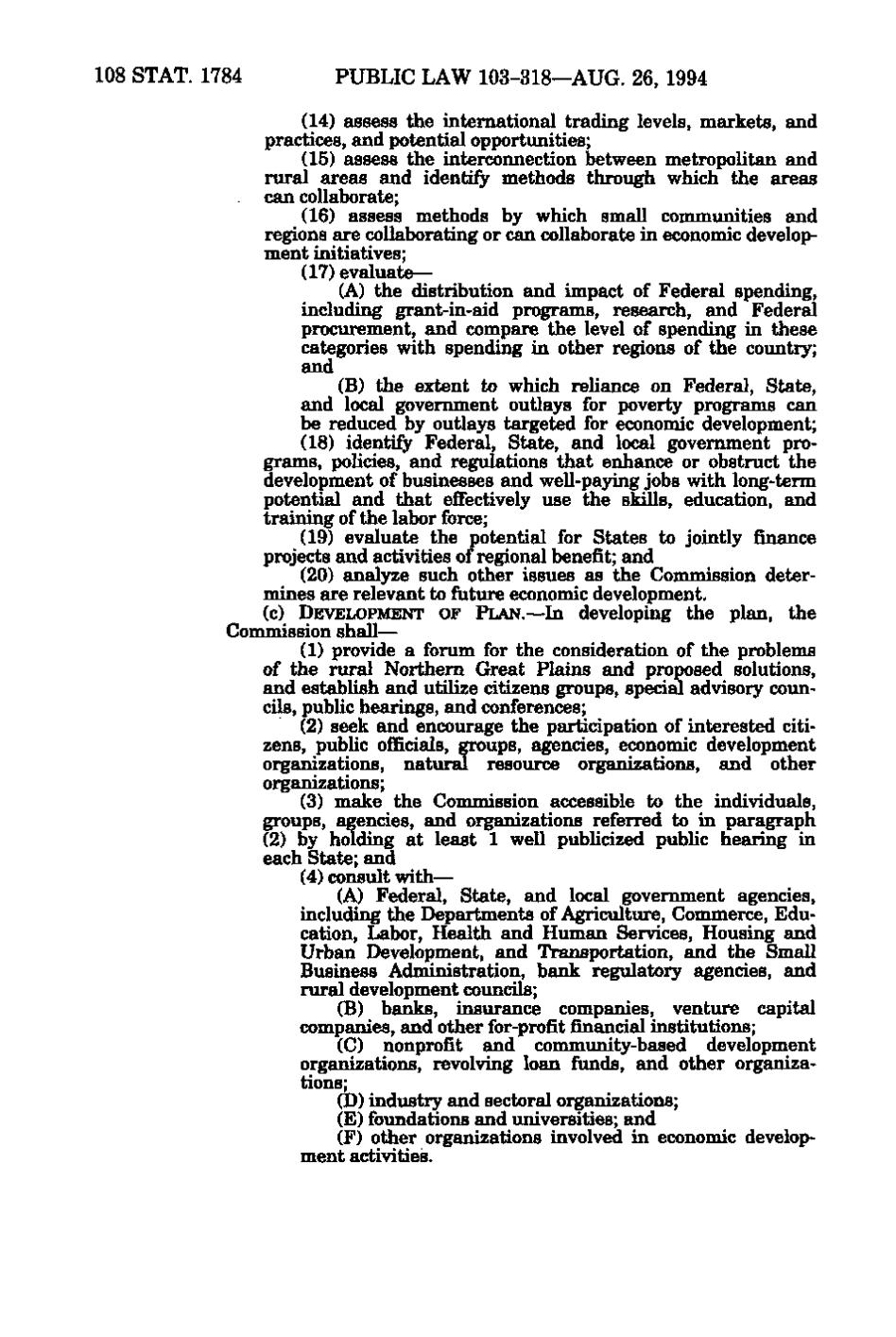108 STAT. 1784 PUBLIC LAW 103-318—AUG. 26, 1994 (14) assess the international trading levels, markets, and practices, and potential opportunities; (15) assess the interconnection between metropolitan and rural areas and identify methods through which the areas can collaborate; (16) assess methods by which small communities and regions are collaborating or can collaborate in economic development initiatives; (17) evaluate— (A) the distribution and impact of Federal spending, including grant-in-aid programs, research, and Federal procurement, and compare the level of spending in these categories with spending in other regions of the country; and (B) the extent to which reliance on Federal, State,
- and local government outlays for poverty programs can
be reduced by outlays targeted for economic development; (18) identify Federal, State, and local government programs, policies, and regulations that enhance or obstruct the development of businesses and well-paying jobs with long-term potential and that effectively use the skills, education, and training of the labor force; (19) evaluate the potential for States to jointly finance projects and activities of regional benefit; and (20) analyze such other issues as the Commission determines are relevant to future economic development. (c) DEVELOPMENT OF PLAN. — In developing the plan, the Commission shall— (1) provide a forum for the consideration of the problems of the rural Northern Great Plains and proposed solutions, and establish and utilize citizens groups, special advisory councils, public hearings, and conferences; (2) seek and encourage the participation of interested citizens, public officials, groups, agencies, economic development organizations, natured resource organizations, and other organizations; (3) make the Commission accessible to the individuals, groups, agencies, and organizations referred to in paragraph (2) by holding at least 1 well publicized public hearing in each State; and (4) consult with— (A) Federal, State, and local government agencies, including the Departments of Agriculture, Commerce, Education, Labor, Health and Human Services, Housing and Urban Development, and Transportation, and the Small Business Administration, bank regulatory agencies, and rural development councils; (B) banks, insurance companies, venture capital companies, and other for-profit financial institutions; (C) nonprofit and community-based development organizations, revolving loan funds, and other organizations; (D) industry and sectoral organizations; (E) foundations and universities; and (F) other organizations involved in economic development activities.
�
